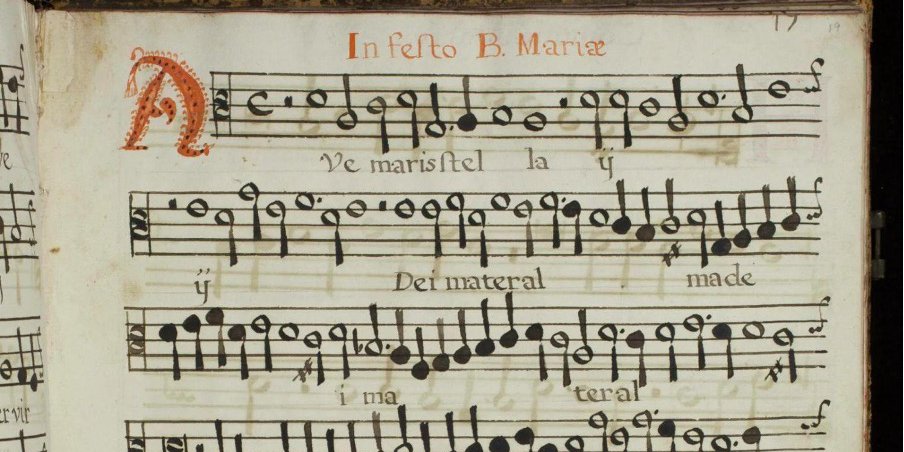Global Music and Religious Orders in the Early Modern Era

Newberry Library, MS 5148 (choirbook used by the nuns of the Convento de la Encarnación in Mexico City, c.17)
Park Abbey (Leuven) and Royal Library of Belgium (KBR) | 26–28 June, 2025
Hosted by KU Leuven, the Alamire Foundation, and the Royal Library of Belgium (KBR)
The early modern period (ca. 1500–1800) saw increased European exploration across the globe. A more globalised world facilitated new forms of material, intellectual, and cultural exchange. While these transfers were usually led by state-promoted colonial endeavours, religious orders also emerged as key actors, especially through missions in the name of the church. The most well-known of these orders were the Jesuits. The first truly global Catholic order, the Jesuits led missions within American colonial empires, in non-Catholic parts of Europe, and non-Christian realms in both Africa and Asia. Other orders were entrusted with ownership of territories (like the Hieronymites and Dominicans in Hispaniola), designed to usher Catholicism into the New World. This conference explores the role of religious orders in musical transfers during this age of exploration and colonial expansion. The papers will cover not just the transfer of Catholic music to non-Catholic areas, but also the exchange of indigenous musical styles and practices to Europe. The conference will open new methods of approaching early modern musical encounters, exploring how musical reception can influence religious and social identities within a global context.
Keynotes
David R.M. Irving (ICREA & IMF, CSIC) and Glenda Goodman (University of Pennsylvania)
Programme & Registration
A detailed overview of the conference programme can be found below.
In-person participation is now closed, but registration is still possible to attend remotely via the link here. Links to join the online portal will be sent to you the day before the conference. Virtual participation is free.
Publication
A selection of papers from the conference will be published in an edited volume, provisionally titled Early Modern Musical Mobilities. The edited volume will tentatively be published with Oxford University Press.
Conference Committee
- Convener: Henry T. Drummond (Alamire Foundation/KU Leuven)
- Scientific Committee: Henry T. Drummond (Alamire Foundation/KU Leuven), David Burn (Alamire Foundation/KU Leuven), Anne-Emmanuelle Ceulemans (UC Louvain/Musée des Instruments de Musique), Antonio Chemotti (KBR/Alamire Foundation/KU Leuven), Émilie Corswarem (Université de Liège).
- Organising Committee: Henry T. Drummond (Alamire Foundation/KU Leuven), David Burn (Alamire Foundation/KU Leuven), Anne-Emmanuelle Ceulemans (UC Louvain/Musée des Instruments de Musique), Bart Demuyt (Alamire Foundation/KU Leuven), Ann Kelders (KBR/Alamire Foundation), Paul Kolb (Alamire Foundation/KU Leuven), Lothar Peirsman (Alamire Foundation/KU Leuven), Miriam Wendling (Alamire Foundation/KU Leuven).
Sponsors and Partners: KU Leuven, Alamire Foundation, the Royal Library of Belgium (KBR), the Fonds Wetenschappelijk Onderzoek – Vlaanderen (FWO), and the Fonds de la Recherche Scientifique (FNRS).
Contact
For questions, please contact Henry Drummond
